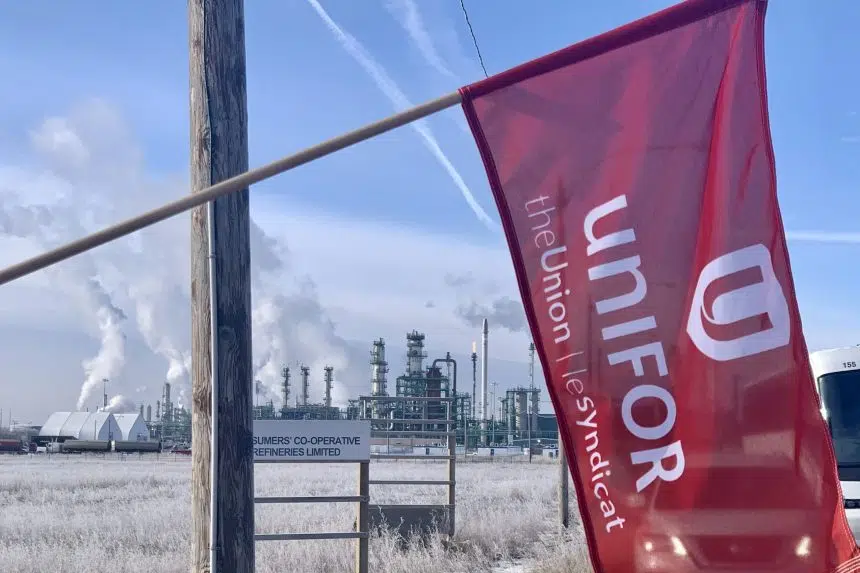Unifor continues to dig in its heels as members enter Day 5 of picketing at Regina’s Co-op oil refinery.
They’ve been there since Friday, after the company locked them out when the union served strike notice to management at the refinery.
The two sides are in the middle of a labour dispute over employees’ contributions to their pension plans.
Co-op wants union members at the refinery to start chipping in on their pensions — up until the lockout, the company had been covering them by 100 per cent — while the union wants its members to have a choice between contributing in part to their pensions, and the company doing so entirely.
Unifor’s lead negotiator, Scott Doherty, says they won’t budge unless union members are given that choice as part of the bargaining process.
“I don’t see why we would have conversations. Until the employer is prepared to take that concession off the table, then I don’t know what there would be to talk about,” he said on Gormley.
That’s a rather counterproductive approach, according to Vic Huard, who’s a vice-president with Federated Co-operatives Limited.
“They essentially have said no discussion until we take the things to discuss off the table, which for me seems a bit backwards,” he said on Gormley.
Doherty confirmed that the current defined benefit plan union members belong to has the company contributing 100 per cent to their pension plans.
That leaves Co-op in a scenario it can’t afford, Huard said, comparing his company’s current defined benefit plan with Shell’s defined contribution plan.
“Their cost on that plan they have is 10 cents on the barrel (of oil); our cost is 42 cents on the barrel (of oil). That’s not sustainable,” he said. “We’re up against some very big competition, multi-national (companies), like Shell.”
He estimated that only two per cent of Canadians have pension plans that they don’t pay into.
Huard also mentioned the company has offered union members an 11.75 per cent salary increase, spread out over four years.
“On average, that’s an additional $12,000 in salary over the four-year term of the contract. That matches the national pattern,” he said.
Huard said management hopes the sides can get back to the bargaining table to continue talking about pension and benefits.










